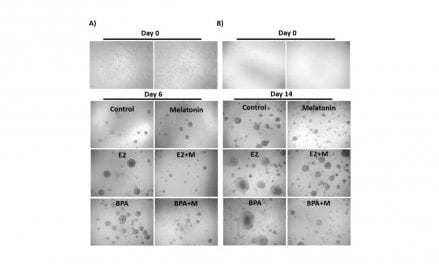A potentially life-threatening challenge characterized by pauses in breathing that can last for more than 20 seconds, apnea of prematurity (AOP) affects more than 50% of premature infants and is almost universal in the smallest preemies. Caused in part by an underdeveloped central nervous system that can’t adequately regulate breathing outside of the womb, especially during sleep, AOP is not yet fully understood by scientists and remains a grave concern among neonatologists and parents alike.
New research published in the October issue of Pediatrics by clinical scientists at the University of Massachusetts Medical School suggests that heredity may play a strong role in determining an infant’s susceptibility to AOP and could lead to the development of more effective treatments and screening methods.
Elisabeth B. Salisbury, PhD, assistant professor of neurology, David Paydarfar, MD, professor of neurology and physiology at the University of Massachusetts Medical School, and colleagues compared the rates of AOP in 217 identical and fraternal twin pairs to determine whether heredity played a role in the condition. Using advanced statistical models, they calculated the correlation of the onset of AOP in twins born before 36 weeks gestational age to determine if a genetic component was responsible. They discovered that in same-gender twin cases where one fraternal twin suffered from AOP, the other twin had a 62% likelihood of also having AOP. In identical twins, the correlation of AOP diagnosis among identical twin pairs was significantly higher—87%.
These findings indicate that genetic influences shared by identical twins play a significant part in developing AOP. "While other factors, including environmental ones, contribute to AOP, our study suggests a surprisingly strong genetic predisposition for AOP. Further research is needed to confirm our results and to find the specific gene or group of genes that are linked to this common developmental disorder of breathing," said Paydarfar.


